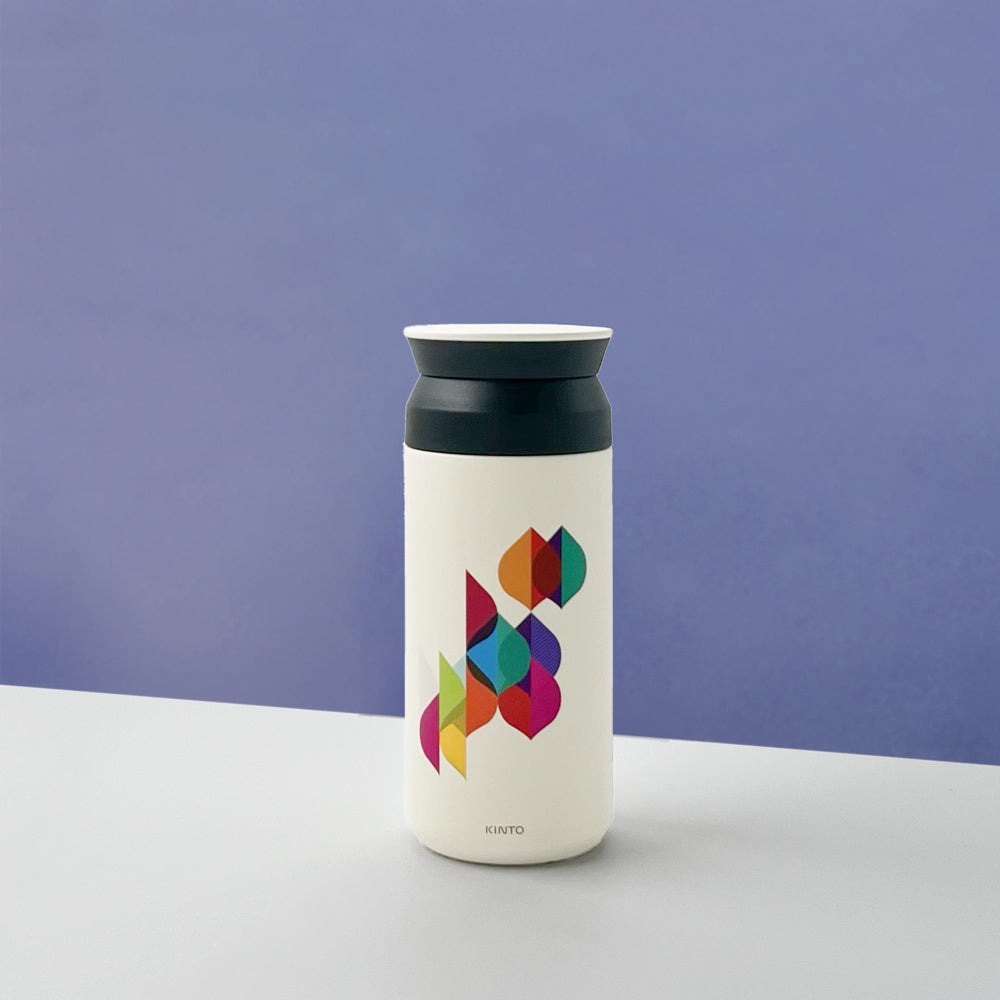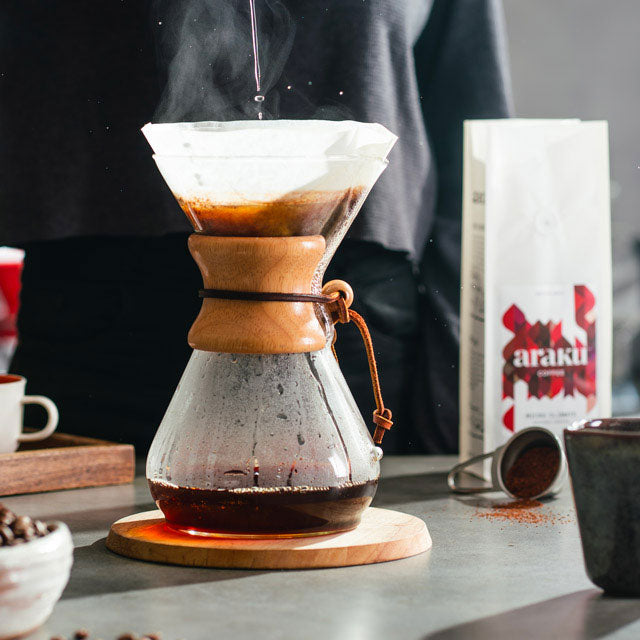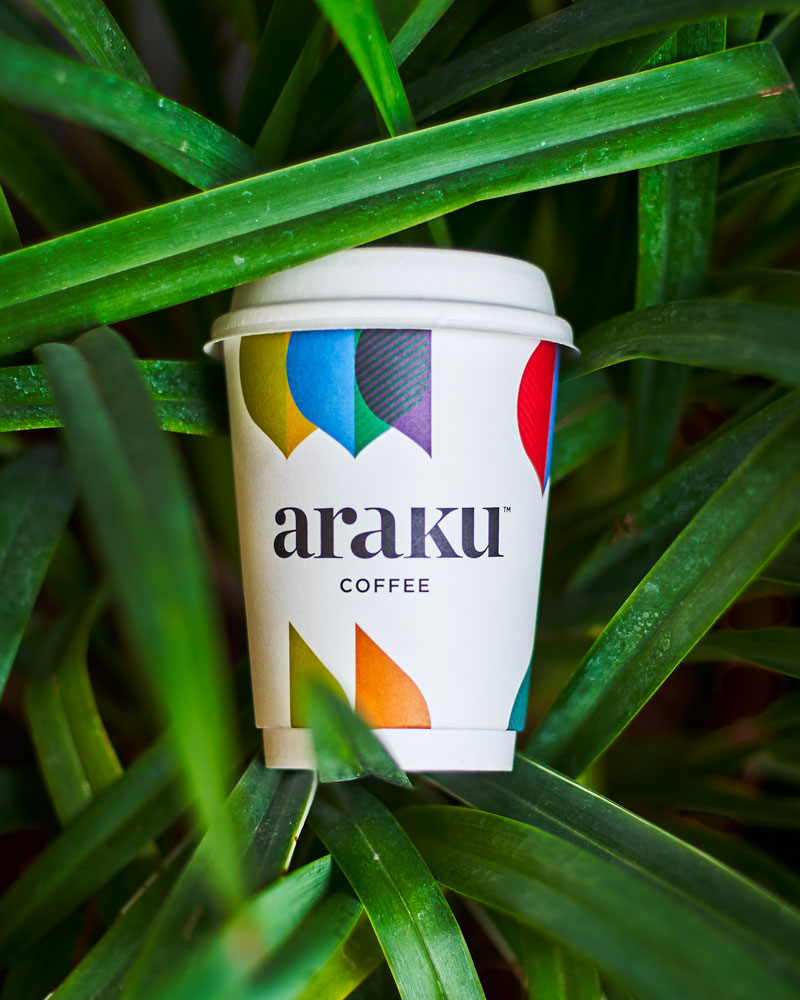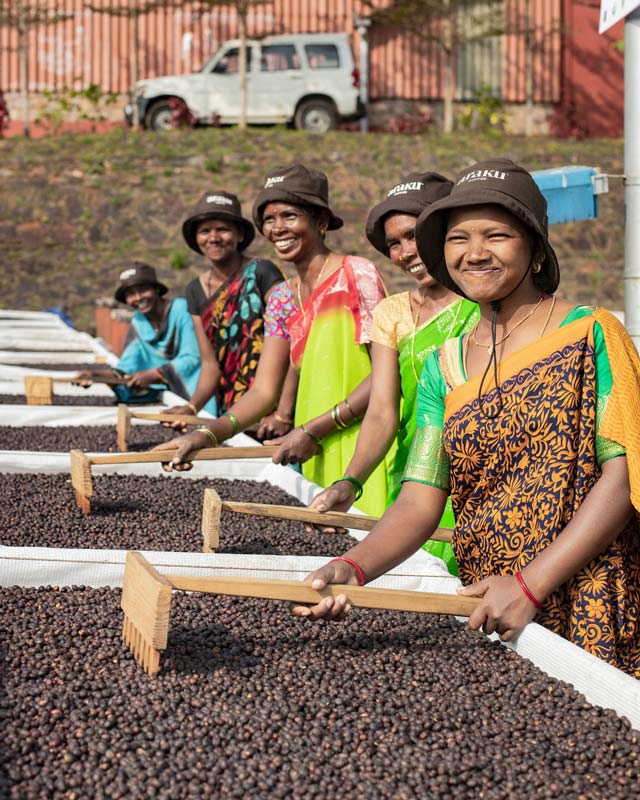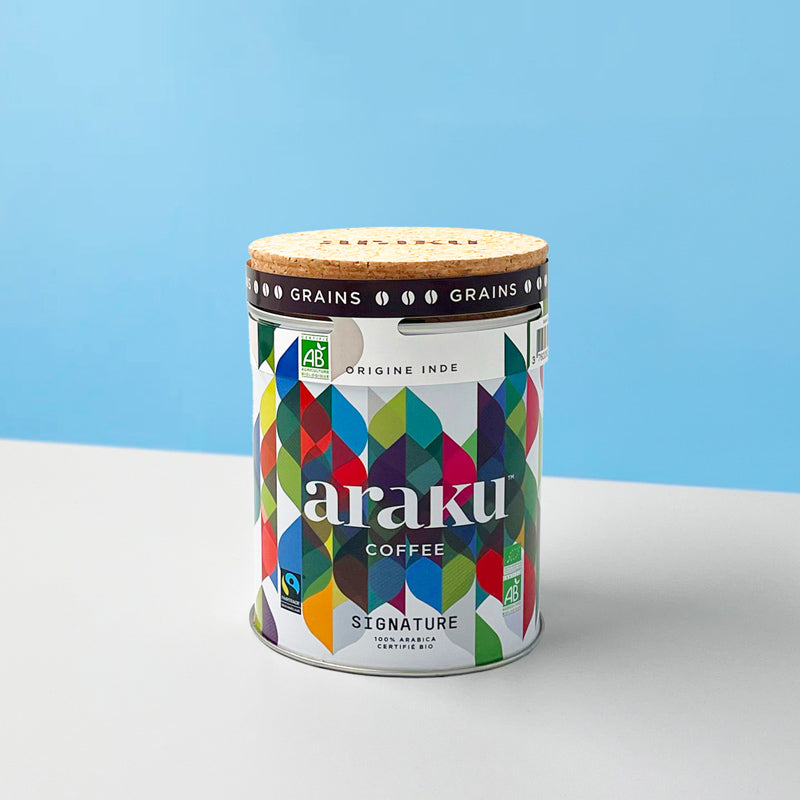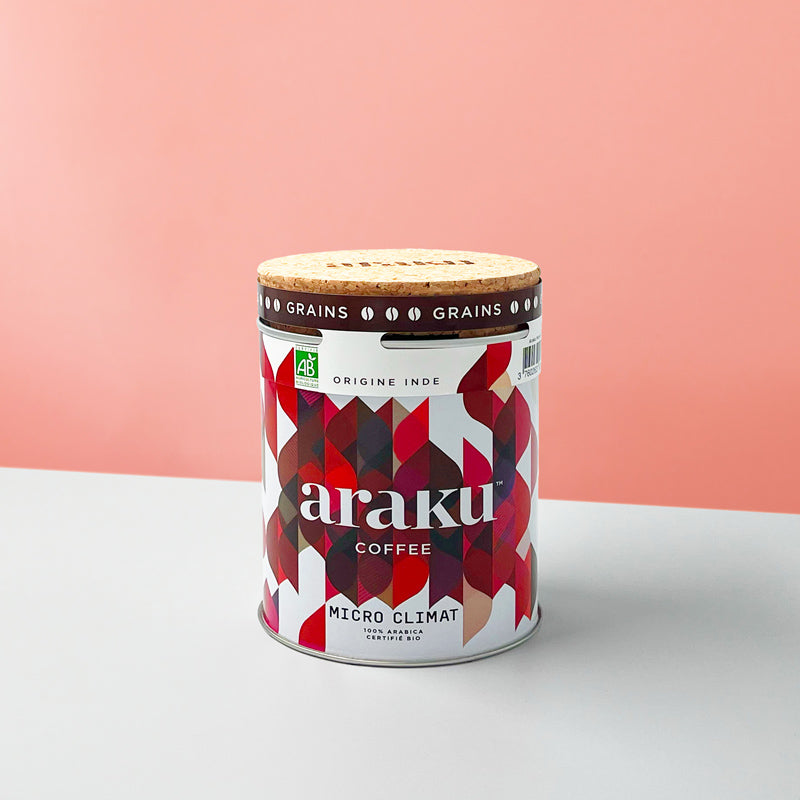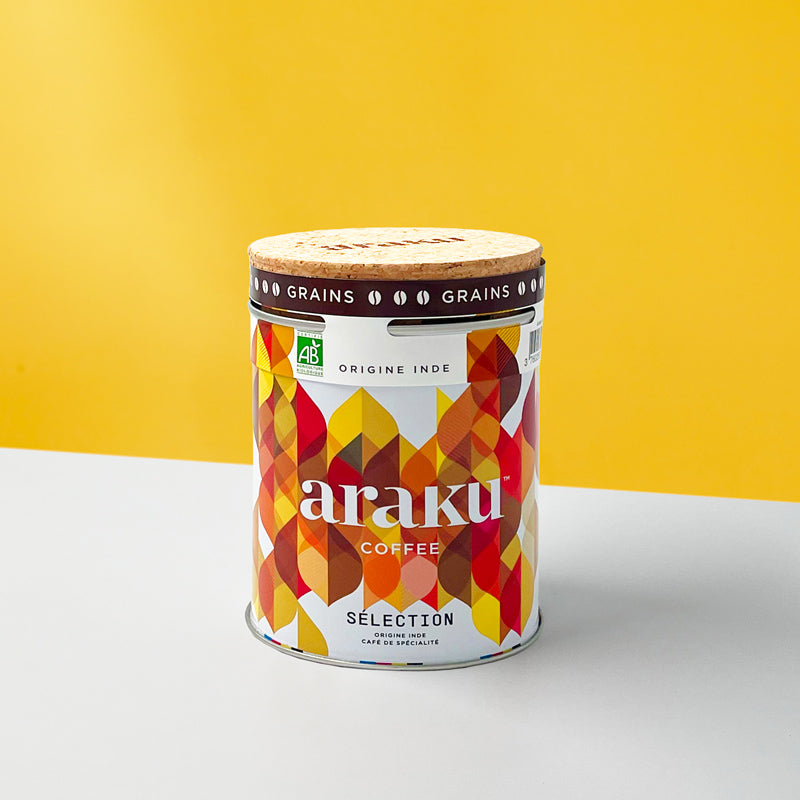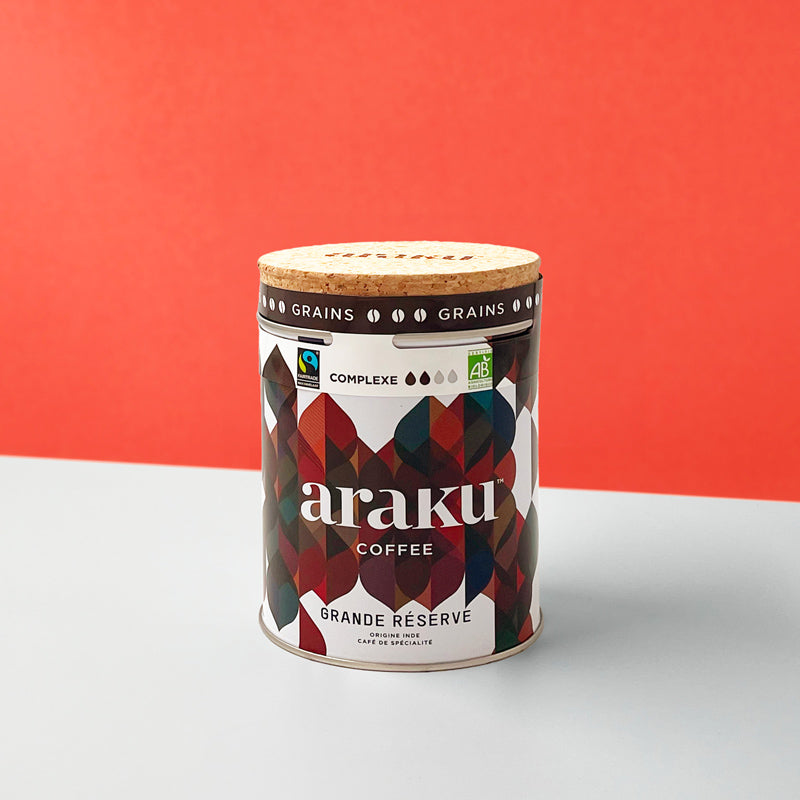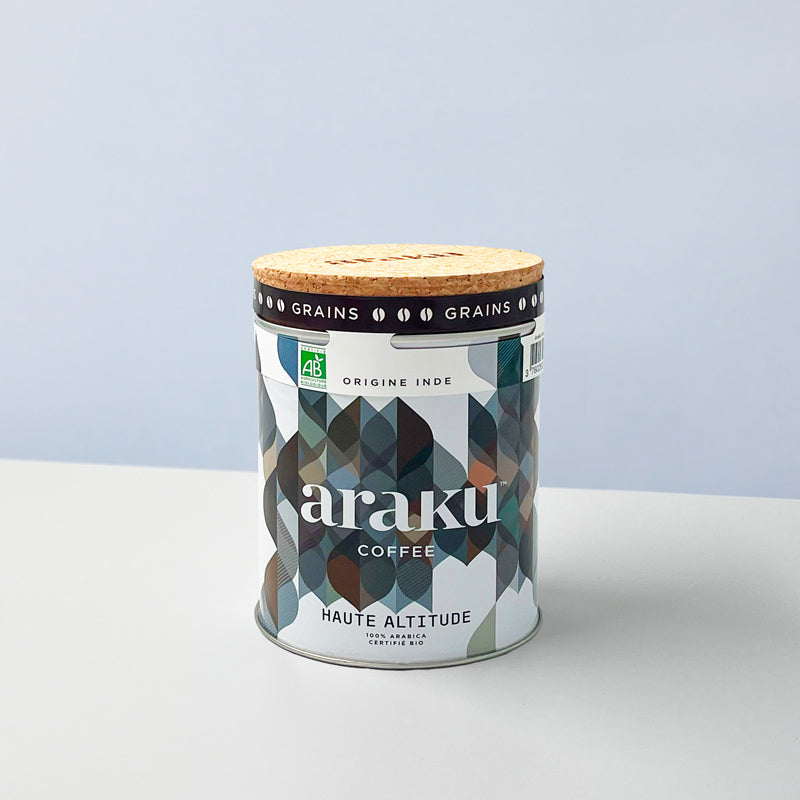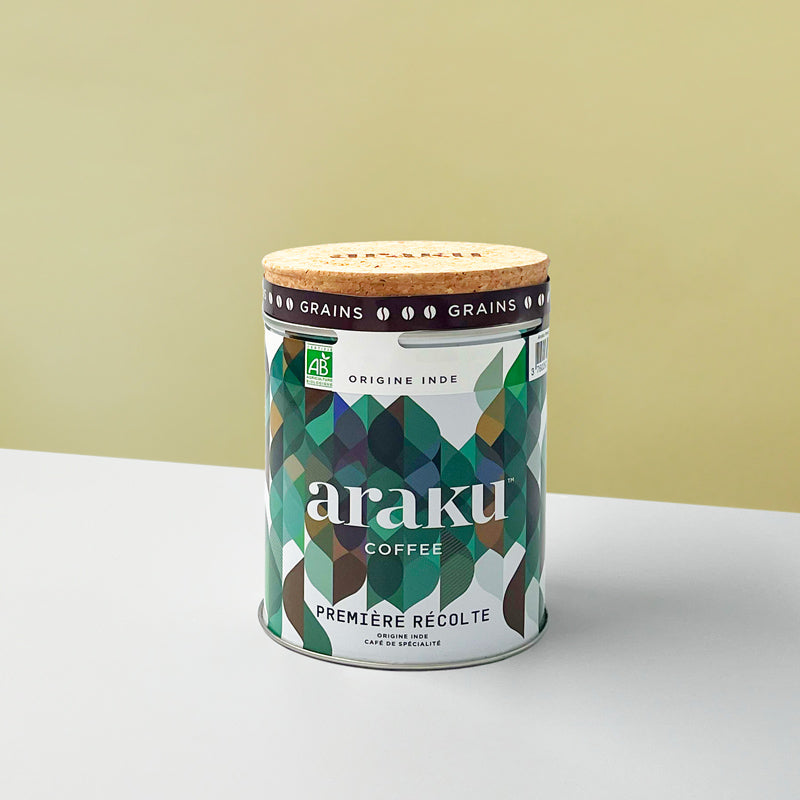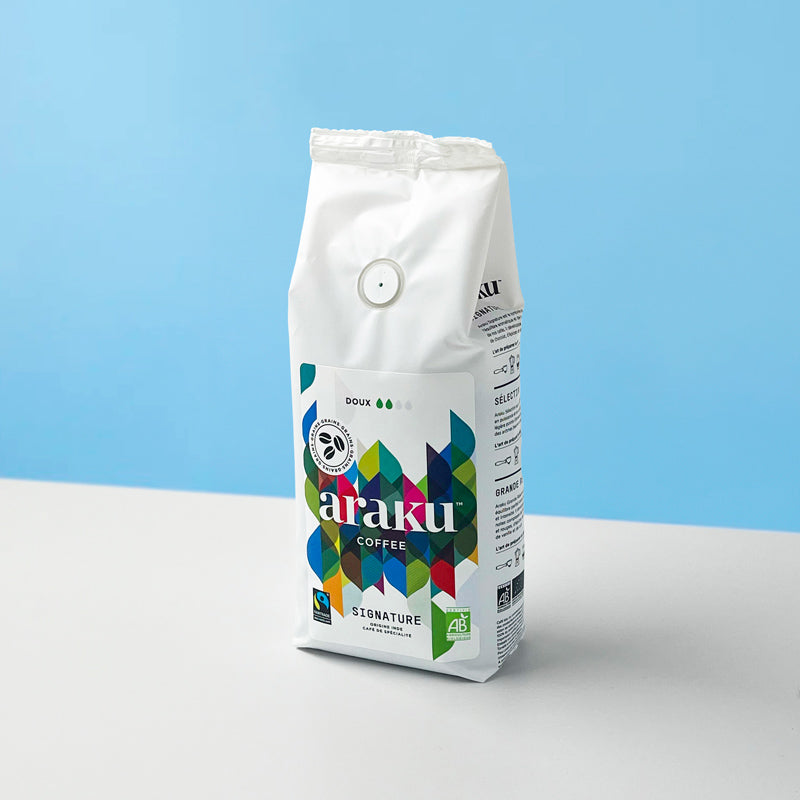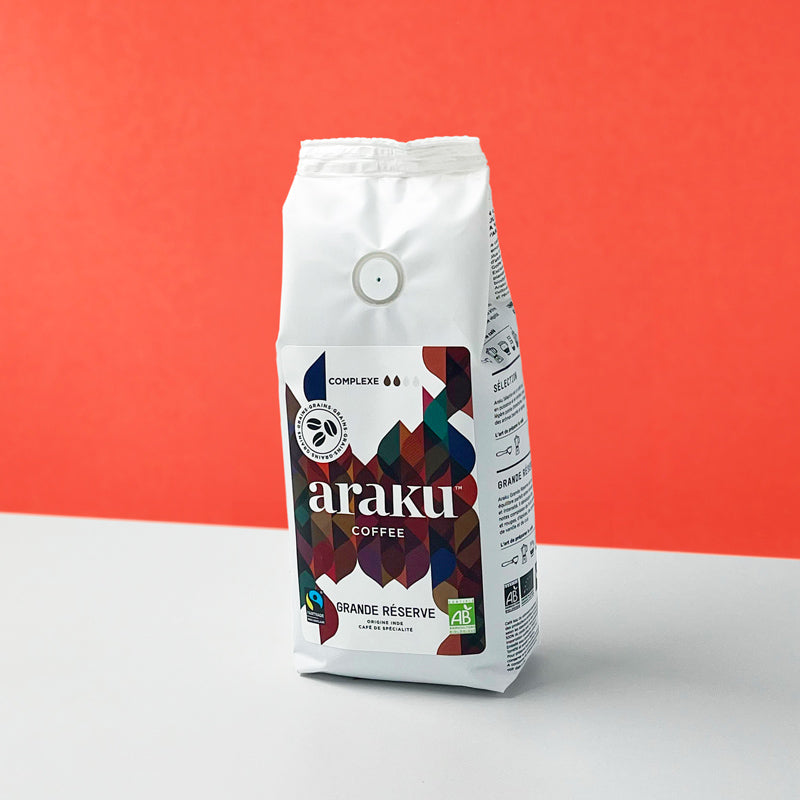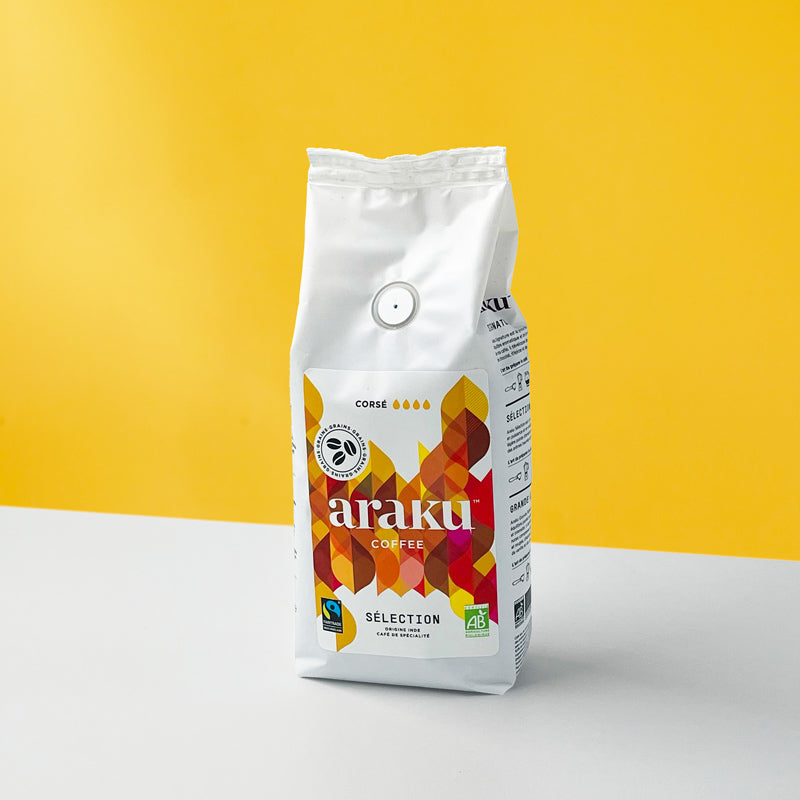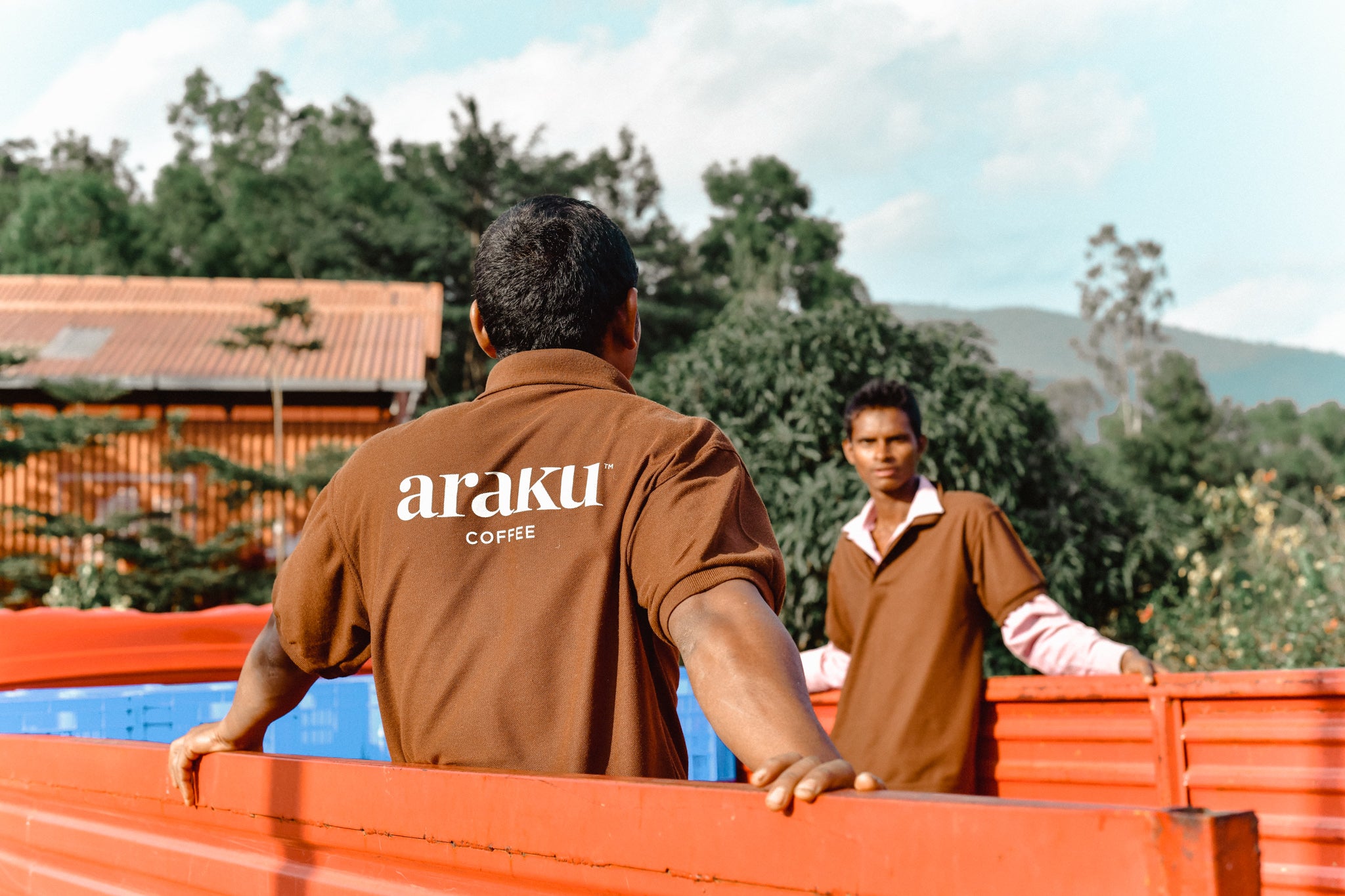Can organic coffee expire?
Any coffee, whether whole beans, ground, or instant, will eventually go bad. The natural compounds in coffee begin to break down over time, altering the quality and taste of the product. Upon roasting, organic coffee beans begin to release carbon dioxide, gently beginning the degradation process. Thus, most roasted organic coffees have an expiration date that does not exceed eighteen months after roasting. After this date, the coffee is not unfit for consumption, it is just likely to have lost a lot of aromas and quality.
The dates indicated are therefore not in reality expiry dates beyond which the product must be thrown away but dates of optimal use beyond which the quality of the product is significantly altered. DLC vs DLUO, Consumption Expiry Date vs Optimal Use Expiry Date, coffee is part of the second category.
Coffee beans or ground coffee, which is stronger?
To appreciate a coffee at its true value, it is often advisable to favor the purchase of coffee beans , then to consume the coffee quickly after having ground it and prepared its grind. In fact, coffee beans are more resistant and their aromas are less likely to be altered. The whole grain husk acts as a natural barrier against defects in the storage environment. For its part, ground coffee loses its freshness quickly, but can be used for up to six months if stored correctly.
Delay the expiry process: optimize conservation
To preserve the quality of their organic coffee beans as much as possible, the consumer must bring together several key factors.
First, it is advisable to store your organic coffee in an airtight container, protected from air. This is because oxygen accelerates the decomposition process of coffee compounds. Thus, organic coffee left in the open air will quickly lose its freshness. This is why the packaging is inerted with nitrogen.
In addition to oxygen, light is also likely to alter the quality of your organic coffee. Whether natural or artificial, light damages organic coffee molecules through a phenomenon of photo-degradation. So, even if they don't always have the charm of transparent jars, more opaque containers have the gift of preventing your coffee from getting exposed to the sun.
Finally, if your coffee doesn't like tanning, it doesn't like extreme temperatures either. As with many other foods that perish over time, heat is capable of causing molecules to move and increasing the risk of product deterioration. Many consumers make the mistake of storing their jars of organic coffee near the kettle or stove. But the fridge is not an option either, too cold temperatures block the aromas. The ideal is to store your coffee in a place at room temperature and in the dark, a closed cupboard for example!


